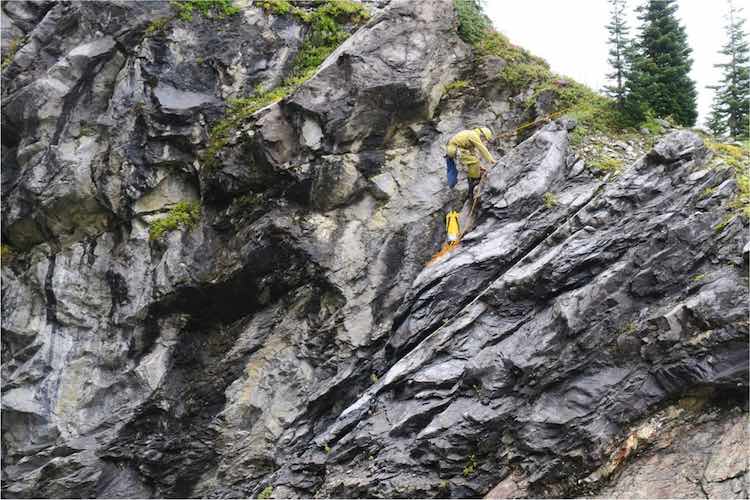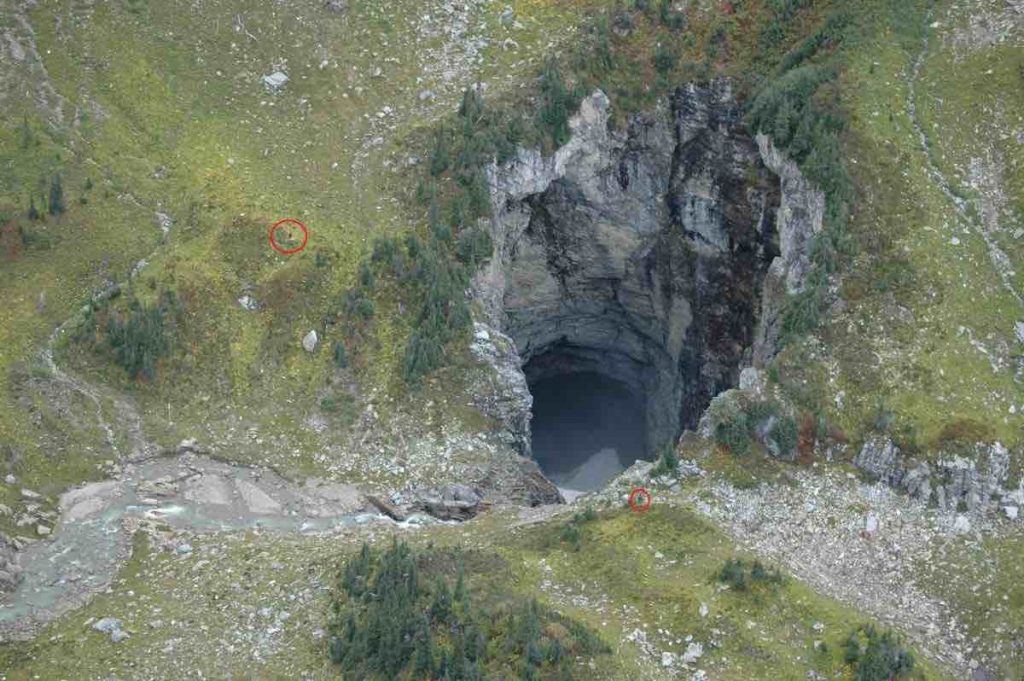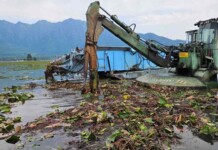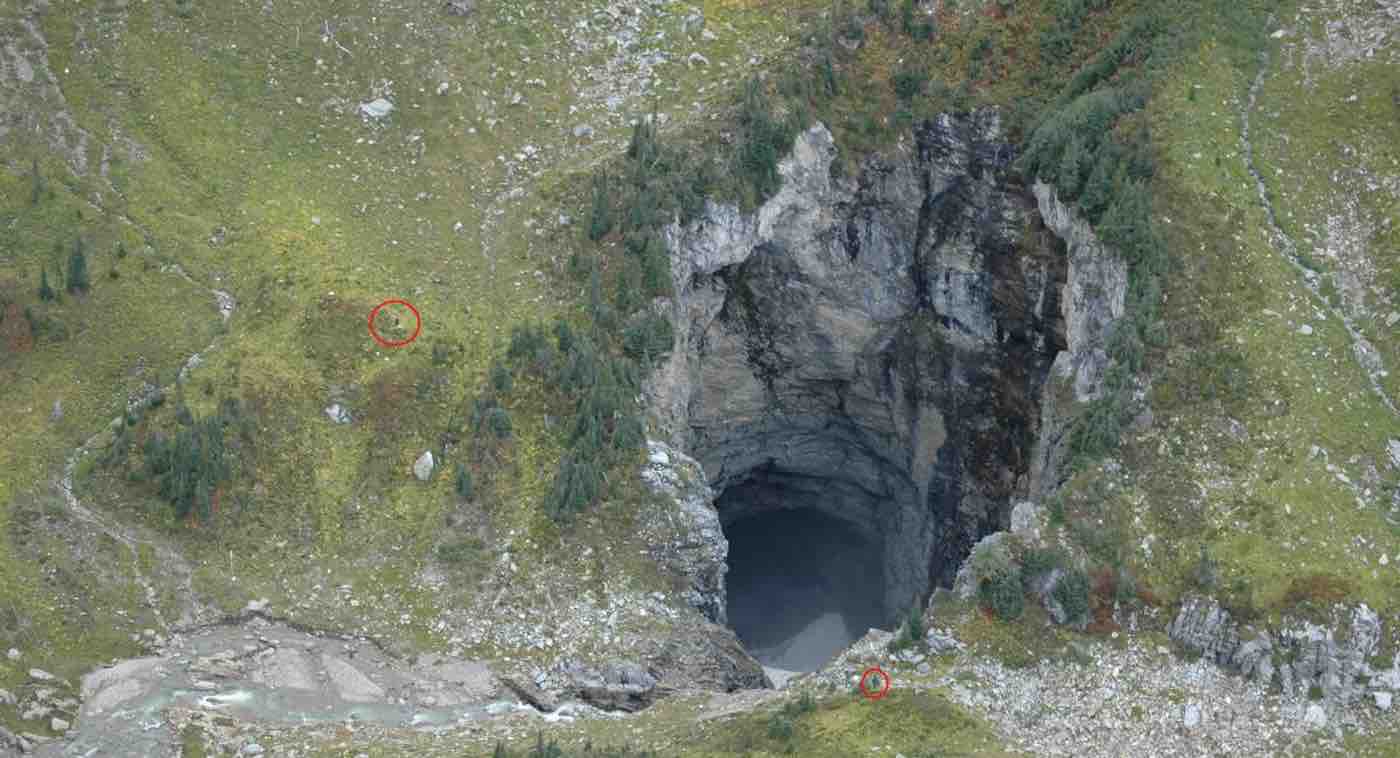
A “honking big” cave has been discovered tucked away in the rugged Canadian landscape – and geologists are in awe of its magnitude.
The cave, which is located in British Columbia’s Wells Gray Provincial Park, was first spotted by researchers when they were performing a routine caribou survey by helicopter. From their air-borne position, it looked like a black hole amidst a sea of snow.
After waiting for the snow to melt, the researchers raised about $5,000 – a large chunk of which came out of their own pockets – for a day-long expedition. They returned to the massive void in early September and were stunned by what they found.
At its opening, the cave is 330 feet in length and almost 200 feet across – which is wide enough to comfortably accommodate the State of Liberty.
John Pollack, who is a governor of the Royal Canadian Geographical Society and an archeological surveyor who went on the expedition, revealed the existence of the cave in an interview with Canadian Geographic explaining the enormity of the discovery.
“I’ve been in some of the biggest caves in the world, and this thing has an entrance that is truly immense, and not just by Canadian standards,” said Pollack.

“The opening is 100 meters long by 60 meters wide, and when you’re standing on the edge looking down into it, your line of sight is nearly 600 feet [183 meters],” added Pollack. “You don’t get lines of sight of 600 feet in Canadian caves — it just doesn’t happen. And this is a shaft. It goes down quite precipitously, it had a large amount of water flowing into it and is wide open for as far down it that we’ve gone.
“The scale of this thing is just huge,” he added, “and about as big as they come in Canada.”
The pit as been affectionately dubbed the “Sarlaac Pit” in a reference to the tentacled creature that briefly appears in Star Wars: Return of the Jedi. The name is only temporary, however, as the British Columbian parks department is currently consulting First Nations tribes to see if the cave has already been given a more culturally significant name.
WATCH: After Planting a Tree Every Day for 40 Years, Man Has Created Blossoming Forest on Barren Wasteland
Researchers are also keeping the location of the cave a secret not only to keep the area unsullied by human presence, but also to prevent amateur mountaineers from attempting to explore the fissure because “this cave is truly in the middle of nowhere,” Pollack added in his interview with the geological magazine.
“We don’t even think it’s feasible for someone to walk in and do anything. You might be able to reach it, but you couldn’t bring in enough equipment to do anything about it. It’s out there in mountainous terrain, surrounded by glaciers and at the bottom of a 45-degree avalanche slope that rises 2,000 to 2,500 feet above it, meaning you can’t go to it in winter. The only time you can really do anything there is in September, when the water flow is at its lowest. This is a wild place.”
(WATCH the video taken by Catherine Hickson below)
Be Sure And Share This Fascinating Story With Your Friends On Social Media





















I can see why this could be easily overlooked, especially if it is only visible for a month or two of the year.
What a marvelous example of the power of water. That cave was created by millennia of water run-off.
I think Sarlaac Pit is very appropriate if it hasn’t been named already by the indigenous people.